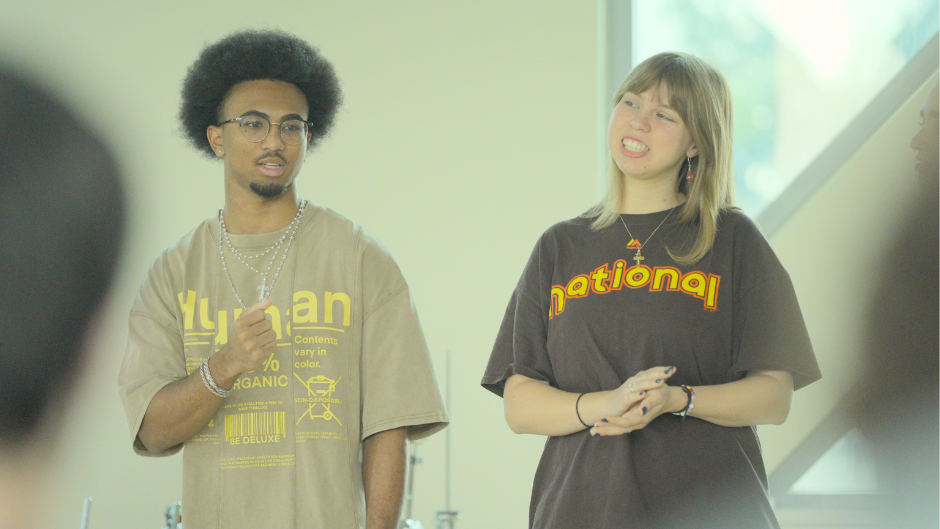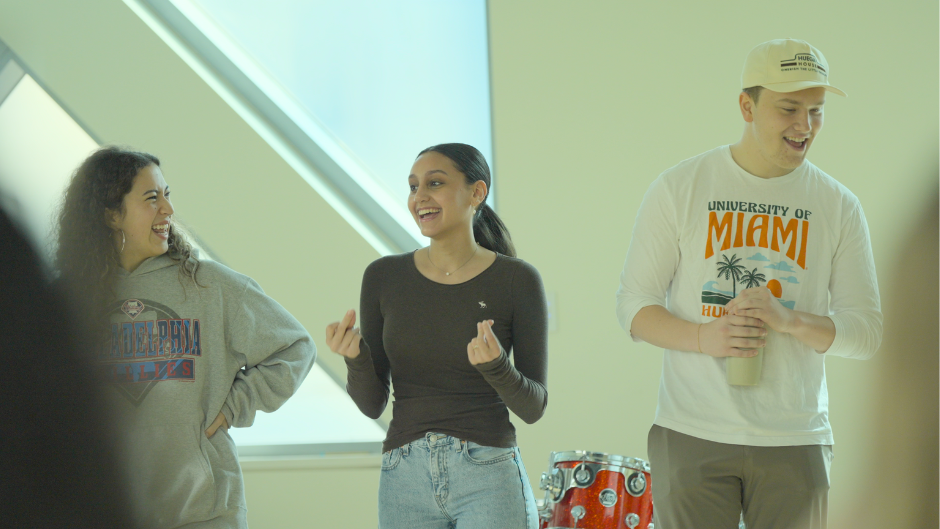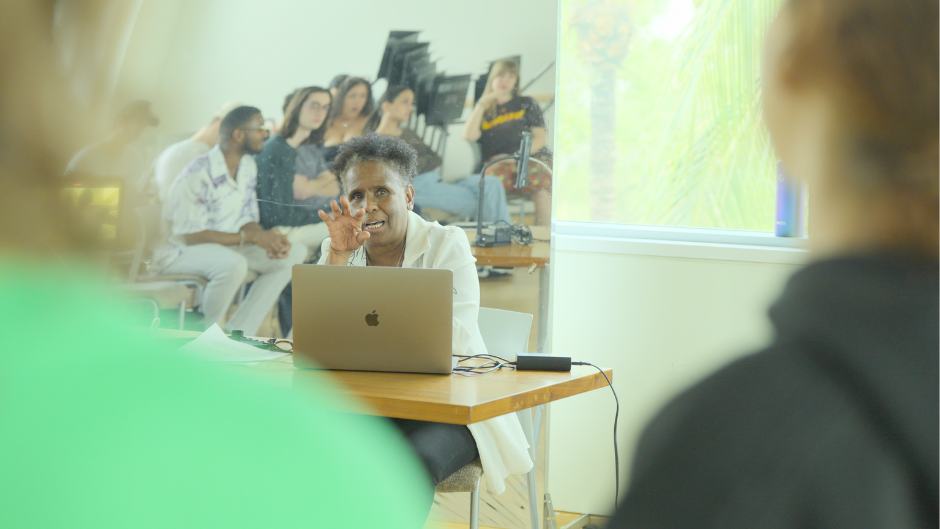From gospel, blues, and soul to R&B and funk, Black music is woven deeply into the tapestry of American music. It is part of the foundation of rock and roll, hip-hop, jazz, country, ballads, and just about every other popular genre.
In Frost School of Music lecturer Nicole Yarling’s class “African-American Song Traditions,” aspiring student songwriters learn about, and learn to take inspiration from, crucial Black musical genres.
“It’s very important for people to understand that all these things combined is the music we’re listening to now,” said Yarling, a veteran jazz and R&B singer, violinist, and music educator. “Some people get the impression that Black people only do gospel and blues. We’re such an integral part of American music.”
In Yarling’s class, part of the Modern Artist Development and Entrepreneurship (M.A.D.E.) program, students listen weekly to songs from different Black music styles and eras. These include blues, church music, Memphis and Philly soul, Motown, and funk; as well as lesser-known areas like Black country music and the link between Native American and Black music. Then they write songs inspired by those styles, which they perform in class. At the end of the semester, Yarling and students will choose the best songs to perform at The Fish House Miami, a restaurant with a small jazz and blues club.

In a recent class session, students, most in groups of vocalists backed by a student rhythm section, performed songs they’d written in response to that week’s focus on music from the Civil Rights era. With shimmering harmonies and heartfelt lyrics, they sang about issues looming in their lives: homophobia, book bans, threats to national parks. One quartet used a line from Sam Cooke’s “A Change is Gonna Come,” one of the era’s most powerful anthems, as the basis for a song about immigration and the difficulty of coming together, with the refrain “We were born by the river, on two different sides.”
“A song is a story,” said Yarling. “They’re all really different individuals, and they all have their stories.” She listened intently and approvingly, making brief suggestions about instrumentation or performance. “The students in this class are all super talented,” she said. “My job here is to guide them.”
Learning to tell stories in song via these influential Black music genres will help the students professionally and artistically, Yarling said.
“Learning about many different styles will enrich you as a human being and performer,” Yarling said. “I’m hoping that you borrow from these traditions to help with your songwriting and help with your musicality.”
The students say the class is doing just that. “If you are songwriting professionally in the industry, you need to be able to write on the fly for different voices and different genres that may not be what you write for yourself,” said Alivia Clark, a junior in M.A.D.E., during class. She was also happy to reconnect with gospel music, which she’d sung once in high school. “I loved performing it but never went back to it and had never written in it before. So this class helped me rediscover a genre that I loved.”
Kaleb Beek, a M.A.D.E. sophomore, has been inspired by studying the music behind his focus on hip-hop and R&B. “The roots of those genres are soul and gospel, and I don’t have experience exploring those roots,” he said. He is not the only one. “A lot of students in this class also don’t have experience working with traditional Black music,” Beek said. “So it’s opening up people’s eyes to the influence that this music has had on the stuff they make and listen to. And also what makes that music so special.”

Yarling points out some of the many ways Black music is integral to genres that are not always associated with it. Rhythm and blues were the roots of early rock and roll, and pioneering Black acts like Little Richard and Chuck Berry inspired – and were copied by – white rock acts. Iconic British bands like the Rolling Stones, Led Zeppelin, and the Beatles – one of whose early hits was Berry’s “Roll Over Beethoven” – proclaimed their love of blues and Black rock ‘n rollers. There were Black artists in country music, which is connected to the blues, long before Beyonce’s “Cowboy Carter.” Queen Bey is one of the many hip-hop artists who have long sampled from older Black music genres and songs, from pioneers like LL Cool J through Bruno Mars and Anderson .Paak.
“A lot of times, people listen with their eyes instead of their ears and hearts,” Yarling said. “It’s amazing how much the music is connected. My goal is to show the connection.”

The class can help students rediscover those connections in their own musical history. M.A.D.E. sophomore Hannah Padilla’s parents loved acts like Destiny’s Child, Brandy, and Lauryn Hill. “I grew up with this music, my parents played this music for me a lot – that’s what I Iearned to sing with,” said Padilla. “Then I dove into pop and hadn’t touched back on what I sang when I was little. So coming back to this was full circle.”

